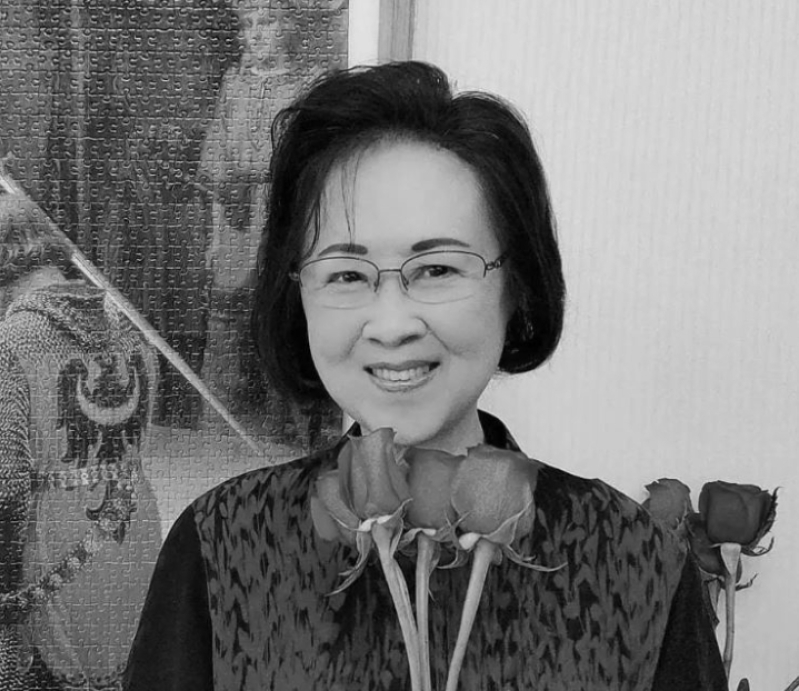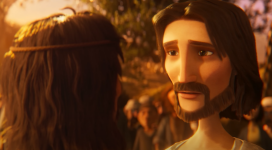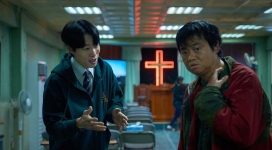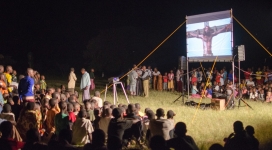On December 4, 2024, at 1:22 p.m., Chiung Yao died at the age of 86 at her home in the Danshui District of New Taipei City. According to reports, she committed suicide in her home and was found lifeless by her family. She was pronounced dead by paramedics upon arrival. Prosecutors from the Shilin District Prosecutor's Office released preliminary test results later that day, concluding that there was no suspicion of homicide and that her family had no objections to the cause of death.

In her suicide note, Yao stated that she was unwilling to endure the torture of aging and illness, and wished to leave on her own terms. She hoped that her family, friends and readers would not be saddened by her passing. On April 20, 2024, Yao had released a video via her personal social media platform on her 86th birthday, announcing that she would gradually fade out of social media platforms, citing that her health condition did not allow her to continue to use social media frequently. In July 2024, Yao released her latest full-length novel, Dream of Plum Blossom Heroes (梅花英雄梦), a work that took seven years to complete and has been described as her final work.
Yao is an important figure in the field of Chinese literature, and her works had also profoundly influenced China's college students in the 1980s and the cultural trends during the Chinese economic reform period. Yao's passing has sparked widespread mourning in the literary and movie worlds, with many actors and readers who worked with her expressing their nostalgia and respect for her.
Yao’s decision to end her own life reflects her views on life and death. In Taiwan where she resides, euthanasia is prohibited by law, and any doctor or medical institution that provides what is now called assisted suicide in the western hemisphere can be charged with murder. This legal environment and restriction left suicide as Chiung’s only passage to leaving the world on her own terms.
Her cultural status and personal influence is enough to stir the conversation of suicide and euthanasia amongst Chinese society in the aftermath of her passing. Many people have praised her decision on social media, calling her progressive: bold enough to not be afraid of death, and considerate enough to leave with minimal disturbance to her family.
This incident comes in the wake of the modern world grappling with medical ethics and the heated debate over whether patients should be allowed to determine their own death. In her death note, Yao encourages young people to live their lives to the fullest, stating that her decision comes at a time when she feels there is nothing more life can give her, and that she, too, has nothing left to give. According to the World Health Organization, suicide is the third leading cause of death among 15–29-year-olds.
Renowned Chinese pastor Rev. Boli Zhang publically disapproved of Yao’s method of ending her life, and discussed the greater issue regarding the meaning of life raised by her death: Is suicide or euthanasia acceptable?
“Yao herself seems to disapprove of suicide as a choice, otherwise she would not urge the young people to not give up on their lives, but to face every challenge and set-back courageously until they’re eighty or ninety,” Zhang said on his personal YouTube platform “She is very sincere in this, because she did live a colorful and exciting life. However, maybe precisely because of this, such active people cannot accept the changes they see in their bodies and life as they age and fade away… However, no matter what situation we find ourselves in, I believe life must not end through suicide of any form, but only through natural death.”
“As a pastor and Christian, I firmly believe that we must not set suicide as presedent for our descendents, especially those with widespread influence on society. No matter what field, whether that be the arts, literature, or politics, we all must be positive role models,” said Zhang. “I am personally against suicide, because it most definitely is not the proper choice.”
Zhang explained that he is against suicide not because he is a Christian pastor, he was against it even before he was a believer. He had himself had suicidal thoughts. Way back in 1989, when he was fleeing from China, he had lost everything and wanted to end everything, including his life. Later, he came to realize no matter how he ended his life, it would bring unconsolable pain and trauma to his loved ones. Suicide is not an end to end all things, like many believe.
The Bible also clearly teaches “do not murder”, which according to Zhang includes suicide. “Life is given by God, we do not have the authority to determine life or death,” he said.
“I’ve noticed that suicide cases in literature and art fields are more prevalent, probably because these people are perfectionists and have a very specific ideal of what life should be. Many people cannot bear to face the aging process, some not willing to let others see how they are fading,” said Zhang. A couple days ago, he visited a 94-year-old senior in New York. Although the senior only spoke a dialect from Wenzhou, not understanding either Mandarin or English, he sang familiar hymns every day and was happy and healthy. This made him reflect on how the meaning of life doesn’t lie in one's own decision to live or die.
Thomas Aquinas, a medieval theologian, once pointed out that suicide is not in accordance with God's will. He argued that from the Creator's point of view, life is given by God, and therefore our lives do not belong to us, but to God. Suicide is tantamount to disobeying God and violating His sovereignty. Historically, churches have even refused to hold funerals for suicides and excommunicated those who attempted suicide.
Some Christians asked if Christians should be able to choose assisted death, to this topic Zhang said that the very concept of euthanasia, whose Chinese term when literally translated means “peaceful and happy death”, is a toxin from wokeism.
Today’s world changes so fast people can’t keep up with it. Political correctness, wokeism, progressivism, and more trends are constantly influencing society , and euthanasia/assisted suicide is on the agenda. People are starting to believe that not only can you decide your gender, you can also decide whether to live or die. Especially in western democracies, there is hot discussion over the issue of euthanasia.
A person commented: “Yao is respectable for being able to choose how she dies.” Responding to this, Zhang said the people who choose death should not be seen as victors, they may very likely be losers. If a person decides when and how they will leave this world, they are playing God.
For seniors to suicide is to despise life. Although their bodies may not be as healthy as when they were young, they can still live a good life through exercising, positive perspectives, and still help others. Zhang suggested that if in old age you feel bored, lonely, and unfulfilled, the best choice is to devote yourself to help others. For example, if instead of suicide Yao chose to be like Mother Teresa, her legacy would be more impactful. As a matter of fact, there are some Christian artists in China, such as Yuan Li, who has taken the lead to care for the pneumoconiotics and volunteered to be a volunteer for the “Great Love Dust Bowl”. In the U.S., there are many movie actors and actresses known for their charitable work, who dedicate the rest of their lives to helping others in their old age, especially to help the children and the teenagers, and to guide them to lead a healthy life.







